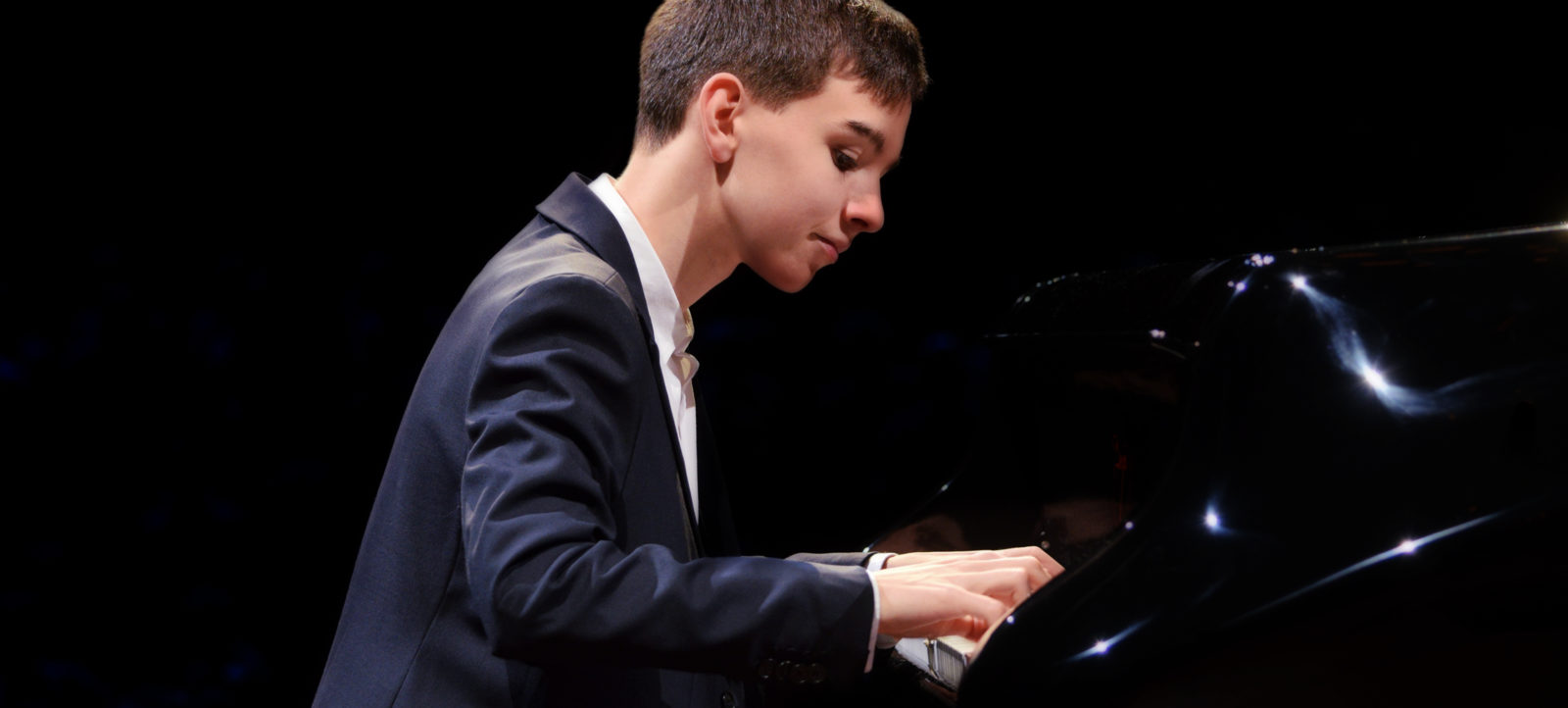
Budapest
Zoltán Kocsis Memorial Concert
Hungarian National Philharmonic Orchestra
FRÉDÉRIC CHOPIN:
PIANO CONCERTO IN F MINOR, OP. 21
Chopin wrote his Piano Concerto in F minor in 1829 when he was just 20 years of age. The work follows the classic conventions of the genre with three movements, two fast and one slow to close, and the piece is dedicated to Delfina Potocka, one of Chopin’s piano students in Paris. Chopin’s youthful compositions are more extravagant and openly virtuoso works than his later character pieces. Alongside six concerto works, two series of virtuoso études and some brilliant sets of variations and rondos, it is also notable that Chopin wrote two piano pieces for chamber music in the first third of his career. The twenty-something Polish composer made his name with these works in Paris, a city teeming with piano titans.
Misi Boros came to the attention of audiences when he won first prize in the Junior category of Virtuózok (Virtuosos), the classical music talent contest broadcast on Hungarian Television.He has appeared in 30 solo concerts with 16 orchestras and 17 conductors throughout the world, and his stupendous talent and charming personality have been praised by such music maestros as Plácido Domingo.
MÁRIA ANTAL: FLOW
Maria Antal completed her composition studies at the Franz Liszt Music Academy in Budapest before moving to London. Entitled simply “Flow”, her work was inspired by Mihály Csíkszentmihályi’s classic work “Flow, the Psychology of Optimal Experience”. Following loosely the structural conventions of a symphony the piece features three movements: Focus, Clarity – Timelessness, Ecstasy.
SERGEI RACHMANINOV: THE BELLS
In 1912, Rachmaninov became familiar with Edgar Allen Poe’s poem The Bells from a free translation by the Russian symbolist poet Konstantin Balmont. From childhood, he had harboured a keen interest in the sounds of church bells, as well as the human stories and emotions they express. In four movements, The Bells tells the story of specific events in a person’s life. Silvery sleigh bells announce a birth, the mellow bells of the second, slow movement ring out to herald a wedding, and loud alarm bells are followed by the slow closing movement, the mourning iron bells of grief and death.

